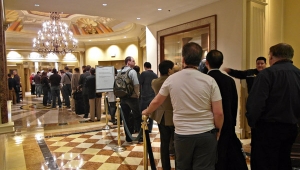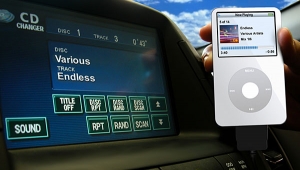| Columns Retired Columns & Blogs |
As a record company, here are some possibilities short of Federal intervention: 1) Become the desirable source. In most cases, pirated merchandise is inferior to legitimate products. Show customers they will get a superior product at a 2) good price. It is well documented the record industry has been trying every way possible to squeeze more money from its customers. Better retail prices mean more retail sales (I call this idea "Capitalism"). If pirates can't undercut the retailers, piracy is impractical. 3) Get with the program. Sites like MP3.COM and Napster (and MP3 in general) should not have been seen as problems, but new ways to sell products. One would think the record industry would find a way to use these outlets to their advantage. Perhaps a BMG or Columbia House download sight (with superior quality downloads) would be just as successfull. 4) Show some trust (a two-way street). The record industry would have everyone believe everyone is into piracy (whether buying or selling), and no one will buy legitimate products. This is not true and most people know it. Conversely, people are less sympathetic to an industry which continues to enjoy growing profits when they exagerate the piracy problem as being an epidemic. There are other ideas which include government interventiion (surcharges on media and/or equipment) like those in Canada which could also be affective. But politicians will be reluctant to jump on an issue so many apparently feel strongly about. Finally, cooperation between the record industry, media manufacturers and equipment companies would certainly be affective, but would likely arrouse anti-trust suspicions among other things.


























